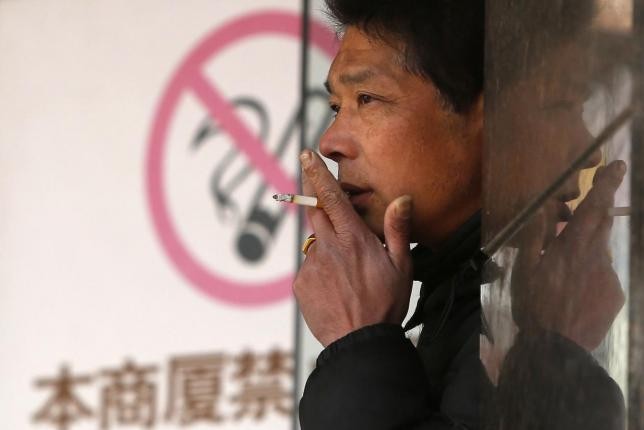China's heightened anti-smoking campaign and tax increase on cigars have pulled tobacco sales down for the first time in two decades.
According to latest figures, the country's tobacco consumption dipped 2.4 percent in 2015, its first drop since 1995. Revenue also dropped 11.7 percent year-on-year starting January to May, while profits fell 24 percent in the same time frame.
The sales fall is being attributed to the government's tighter campaign against smoking and extravagance. Last year, wholesale tax rate on cigars was hiked 11 percent, pushing retail prices of cigarettes up about 10 percent.
Similarly, China's tougher stance on smoking has impacted latest figures. Last year, the Chinese government banned indoor smoking, with selected outdoor public spaces also included in the restrictions.
Violators will face a fine between 50 yuan and 200 yuan, while business owners who fail to implement the ban will be charged up to 10,000 yuan.
President Xi Jinping's massive crackdown on extravagance has also taken its toll on tobacco sales.
"Luxury brands of cigarettes were mostly bought with public money for official receptions or gifts. The strict controls on government spending on banquets and gifts of high-end cigarettes have without doubt affected cigarette sales," tobacco control advocate Yang Gonghuan told the South China Morning Post.
Imposing control on tobacco has been a long-standing problem in China as the mainland's main source of tax revenue is in this industry.
China is the world's largest producer of tobacco products. It also has the biggest number of cigarette consumers, with more than 315 million users.
Despite the fall in tobacco revenues, China still covers about 45 percent of all cigarettes smoked globally.
"Given the size of the Chinese market, this decline exerted a huge impact on total volumes with the world picture worsening by more than 2 percent to reach around 5.5tn sticks, a significant deterioration set against a virtually flat performance in 2014," Shane MacGuill, head of tobacco research at Euromonitor, told the Financial Times.




























